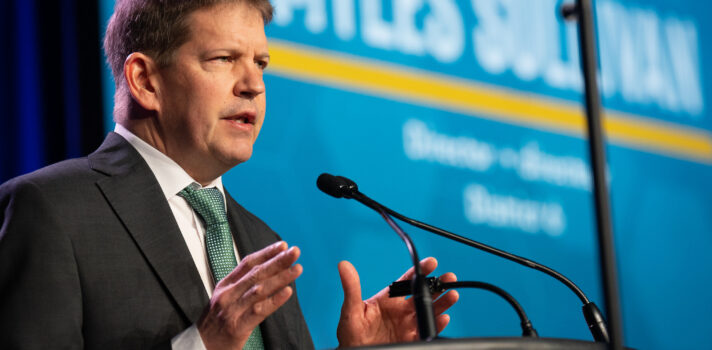Reconciliation means action. Here are some practical things Steelworkers and local unions can do to build reconciliation:
1. Write your municipal, provincial, and federal politicians and ask them how they are implementing the TRC Calls to Action. Specifically, lobby Members of Parliament and demand the federal government reverse its decision not to fund TRC Calls to Action 72-76, which call on Canada to work with Indigenous communities to locate their missing loved ones and unmarked burial places in a culturally informed way.*
2. Watch one Steelworker’s story about the trauma of residential schools
3. Learn about Chanie Wenjack’s story by showing this Heritage Minute at a membership meeting. Know that his story was shared by thousands of other Indigenous children.*
4. In your local, discuss how your employer can provide jobs, training, and opportunities for advancement to Indigenous people.
5. Make a motion to donate to an Indigenous-led organization working to promote truth and reconciliation, including:
- The Gord Downie and Chanie Wenjack Foundation
- The Legacy of Hope Foundation
- Indian Residential School Survivors Society
- National Centre for Truth and Reconciliation
- Orange Shirt Society
- Reconciliation Canada
- First Nations Child and Family Caring Society
6. Join a community event on October 4 or February 14 to honour missing and murdered Indigenous women, girls, and Two-Spirit persons, and donate to organizations that work to end gender-based violence.
7. Check out USW’s Bargaining guide for advancing Indigenous rights and share it with your local executive.
8. Ask your local union to send members to USW’s course, Unionism on Turtle Island, to learn more about our shared history and how we can work for more justice in the present.
9. Learn how to build good relationships with Indigenous peoples who live near you by reading Guidelines for being a good neighbour and ally from USW’s course, “Unionism on Turtle Island.”
10. In your local union, survey Indigenous members to find out what their issues, concerns, and needs are. That’s just one of the good ideas from Indigenous Steelworkers on our list, How USW locals can support Indigenous rights from USW’s course, “Unionism on Turtle Island.”
11. Encourage your local union to start meetings and events with a territorial acknowledgement. To learn how, read Writing a territorial acknowledgement from USW’s course, “Unionism on Turtle Island.”
12. Support a campaign to demand safe drinking water for all First Nations, such as this one by the Council of Canadians: Trudeau: Time to end drinking water advisories in First Nations
13. Find out about the residential school closest to where you live and work. Memorize its name and do a Google search for its history. You can use the CBC’s interactive map Did you live near a residential school? or this map created by the Truth and Reconciliation Commission.*
14. Find out what local children are learning at school about Indigenous peoples, Canada’s history, and residential schools. If it’s out-dated or inadequate, ask the school to do better.
15. Read Aboriginal Peoples—Fact and Fiction, produced by the Institut Tshakapesh, an organization created by the Atikamekw Innu First Nation in Quebec to promote culture and language education.
16. Learn a greeting in a local Indigenous language. (To find out what Indigenous languages are spoken where you live, visit native-land.ca*
17. If you live in an area where there is a treaty relationship, read the treaty document.*
18. Visit the website of the nearest First Nation(s) or Indigenous communities. Read their introduction and history.*
19. Read the Truth and Reconciliation Commission reports. Start with the Calls to Action, then the Executive Summary. You can even listen to it online at #ReadtheTRC. Better yet, invite your friends or union comrades to read it with you.*
*Selected from “150 Acts of Reconciliation” by Crystal Fraser and Sara Komarnisky, and used in USW’s course, “Unionism on Turtle Island”.
—–
Download and print for your local union:
- Guidelines for being a good neighbour and ally
- Writing a territorial acknowledgement
- How USW locals can support Indigenous rights
Share on Facebook



